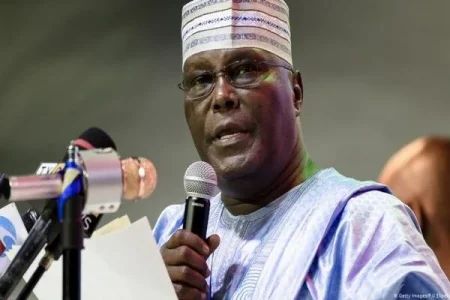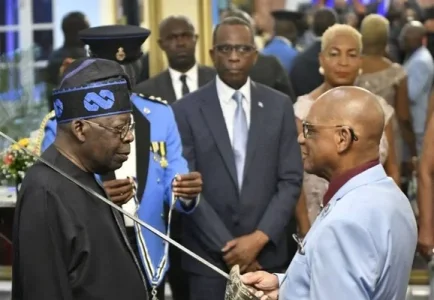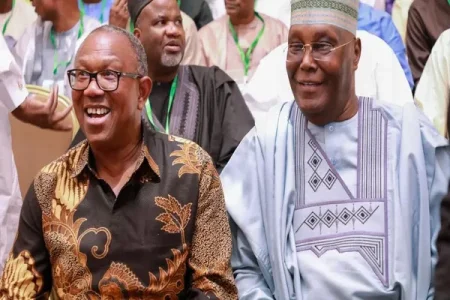
In a recent investigation by FIJ, it has been uncovered that Olubunmi Tunji-Ojo, Nigeria’s Minister of Interior, has engaged over 50 influencers to promote his image on social media. This strategic move comes in the wake of a contract scandal involving Tunji-Ojo's company, stirring public controversies.
Since assuming office in August 2023, Tunji-Ojo has faced media scrutiny, particularly regarding a consultancy project his company, New Planet Project Limited, secured from the Federal Ministry of Humanitarian Affairs and Poverty Alleviation. This revelation sparked calls for his suspension and investigation, leading to a surge of negative sentiments online.
In response, Tunji-Ojo, leveraging a well-organized social media campaign, has enlisted the support of influencers on the popular platform 'X'. FIJ's investigation reveals a coordinated effort where influencers repost and quote Tunji-Ojo's tweets, crafting their own content to amplify the minister's narrative.
Key to their strategy are specific hashtags such as #RenewedHope, #NewDawnWithBTO, #SpotLightOnBTO, and others, strategically used to enhance discoverability and monitor the effectiveness of their campaign. The investigation also highlights a financial component, with influencers earning based on the size of their followership.
Notably, some influencers using false identities are part of this network, with @lollylarry1 emerging as a key figure coordinating the efforts. While the extent of Tunji-Ojo's awareness or direct involvement in compensating these influencers remains unclear, experts suggest that in Nigeria's social media landscape, such campaigns can be orchestrated by associates or aides without the beneficiary's explicit knowledge.
This revelation sheds light on the evolving dynamics of political communication and reputation management in Nigeria, with social media playing a pivotal role. As Tunji-Ojo navigates the aftermath of the contract scandal, the use of influencers raises questions about the intersection of politics, social media, and public perception in the country.
Source: FIJ




